Team Members
- Getachew Agmuas Adnew (Postdoc) Read moreNextClose

Getachew Agmuas Adnew (Postdoc)
g.a.adnew@uu.nlUtrecht UniversityGetachew Agmuas Adnew is a postdoctoral researcher at the institute for marine and atmospheric research, Utrecht (IMAU), Utrecht University. His reach focuses on the exchange of CO2 between the atmosphere and the biosphere and the oxidation capacity of the atmosphere. In his research, he uses stable isotopes of CO2 (𝛿13C, 𝛿18O, Δ17O, Δ47) to understand CO2 exchange between the atmosphere and the biosphere and stable isotopes of O2 (Δ35 and Δ36) to estimate the oxidation capacity of the atmosphere. In the Cloudroots project he is involved in high-frequency CO2 and water vapor isotope measurement.
- Hugo de Boer (PI) Read moreNextClose
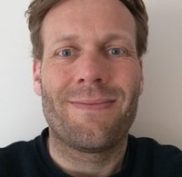
Hugo de Boer (PI)
H.J.deBoer@uu.nlUtrecht UniversityHugo de Boer is assistant professor Global Environmental change at the Copernicus Institute of Sustainable Development at Utrecht University. His research expertise covers several interdisciplinary topics related to integrating theory and observations across the fields of plant ecophysiology, plant evolution and palaeo-ecology. Hugo is specifically interested in research questions related to how morphological and functional plant traits associated with water transport, transpiration and photosynthesis adapt under changing growth conditions. Hugo has experience with modelling leaf gas exchange by applying eco-evolutionary optimality principles, observing microscopic leaf traits (e.g. stomata, guard cells, cuticle cells, minor veins) and conducting greenhouse, growth chamber and field experiments with a focus on quantifying changes in leaf gas exchange in response to changes in atmospheric CO2 concentrations and humidity.
Hugo de Boer - Kevin van Diepen (PhD) Read moreNextClose
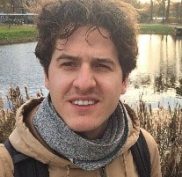
Kevin van Diepen (PhD)
kevin.vandiepen@wur.nlWageningen UniversityMy name is Kevin van Diepen and in December 2020 I started a PhD project that is nested within two chair groups of Wageningen University: the Horticulture and Product Physiology (HPP) group and the Meteorology and Air Quality (MAQ) group. The two chair groups reflect my dual character of plant physiology and micro-meteorology. The aim of my PhD project is to upscale dynamic plant photosynthesis and transpiration from the leaf towards the canopy. Plants in the field are often subject to rapidly fluctuating light intensities (sunflecks). The responses of photosynthesis and stomata to sunflecks are slow, resulting in loss of efficiency. However, these inefficiencies are often estimated on single leaves under laboratory conditions: thorough examinations of a plant’s response to sunflecks in the field are lacking. In my PhD project we will measure leaf- and canopy gas exchange in the field, characterise field sunflecks and use these field observations for dynamic modelling to assess how strongly leaf lab inefficiencies propagate to field canopies.
- Vincent de Feiter (PhD) Read moreNextClose
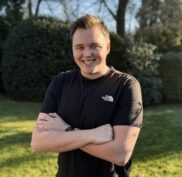
Vincent de Feiter (PhD)
vincent.defeiter@wur.nlWageningen UniversityVincent S. de Feiter is a PhD student in the Meteorology & Air Quality group at Wageningen University. His research, part of the Carbon Atmospheric Tracer Research to Improve Numerics and Evaluation (CATRINE) project, examines the role of shallow and deep clouds in the vertical transport of CO2 from the canopy to the upper atmosphere. The project integrates observational data from CloudRoots with turbulent and cloud-resolving model simulations, regional-to-global numerical model simulations, and machine learning techniques. Vincent is well-acquainted with the CloudRoots project, having previously worked on pre-processing (cleaning and filtering) and characterizing observational meteorological measurements for the CloudRoots-Amazon22 campaign during his MSc thesis.
- Raquel González Armas (PhD) Read moreNextClose

Raquel González Armas (PhD)
raquel.gonzalezarmas@wur.nlWageningen UniversityRaquel González Armas is a PhD student at Meteorology and Air Quality group in Wageningen University. She is physicist and has done the MSc on the use of neural networks to substitute cloud representations in weather or climate models in the same group with the specialization in Meteorology and Air Quality. Her main interest is in boundary-layer meteorology with the special focus on modelling the processes that occur within it with high-resolution simulations. In addition, she is interested in data analysis and machine learning applications.
- Oscar Hartogensis (PI) Read moreNextClose
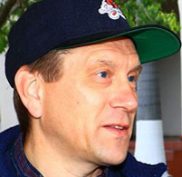
Oscar Hartogensis (PI)
oscar.hartogensis@wur.nlWageningen UniversityDr Oscar Hartogensis is affiliated as a Researcher with the Meteorology and Air Quality group at Wageningen University. He is a meteorologist working in the field of (turbulent) exchange processes between the atmosphere and the land surface. His main fields of interest are evapotranspiration in semi-arid regions and developing new measurement methodologies for estimating fluxes at the land-surface interface. Most of these are related to the scintillometer technique. He has been responsible for some 25 micro-meteorological field campaigns in countries including the Netherlands, Germany, France, Spain, Cyprus, UK, USA, Morocco, Jordan, Chile and Mexico. More information on his publication list.
- Mary Rose Mangan (PhD) Read moreNextClose
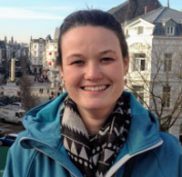
Mary Rose Mangan (PhD)
maryrose.mangan@wur.nlWageningen UniversityMary Rose Mangan is a PhD student in the Meteorology and Air Quality group at Wageningen University. Her research is focused on understanding the local and non-local drivers of evapotranspiration in semi-arid regions. This project combines data from the LIAISE measurement campaign and from numerical experiments with large eddy simulation to investigate how local surface heterogeneities impact the partitioning of the surface energy budget and the development of the atmospheric boundary layer over a range of spatial-temporal scales
- Arnold Moene (PhD adviser) Read moreNextClose
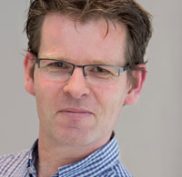
Arnold Moene (PhD adviser)
arnold.moene@wur.nlWageningen UniversityDr. Arnold Moene is associate professor in de Meteorology and Air Quality group of Wageningen University. Has a special interest in atmosphere-vegetation-soil interactions, and in particular in three aspects of those interactions: plant processes, atmospheric turbulence (both above and inside the canopy) and the role of vegetation in the surface energy and carbon balance. His research tools are the analysis of observational data, conceptual models and Large Eddy Simulation (full references).
Apart from his research activities Arnold Moene is active in the field of education: he authored a text book on the interaction of atmosphere and vegetation, is an educational innovator, developing new tools and ways of teaching (e.g. https://scientific-method-course.github.io) and is programme director of the Wageningen Earth Sciences programmes (BSc Soil, Water, Atmosphere and MSc Earth and Environment). - Robbert P.J. Moonen (PhD) Read moreNextClose
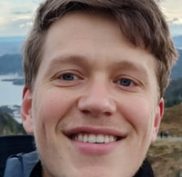
Robbert P.J. Moonen (PhD)
robbert.moonen@wur.nlUtrecht UniversityMSc. Robbert P.J. Moonen is a PhD student at Utrecht University under the Cloudroots NWO grant that Jordi Vilà and Thomas Röckmann received. He has gained his master’s degree at Wageningen University where he specialized in Meteorology and Air Quality. His main interests are the various turbulent exchanges between the land surface and the atmosphere, where he focusses on direct measurements of such fluxes. To this end, he uses tools like the Eddy-Covariance technique and Scintillometer method. Additionally, he is getting acquainted with high frequency measurements of CO2 and H2O isotopologues using laser spectroscopy. His ultimate goal to separate the respiration components from the vegetation and the soil at very short timescales by making flux measurements of these isotopologues. Such information will help to advance our understanding of plant dynamics and improve the parameterization of vegetation and soils in model simulations.
- Xabier Pedruzo Bagazgoitia (Postdoc) Read moreNextClose
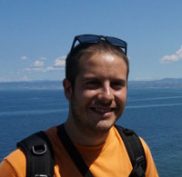
Xabier Pedruzo Bagazgoitia (Postdoc)
xabier.pedruzobagazgoitia@wur.nlWageningen UniversityDr Xabier Pedruzo Bagazgoitia is Postdoc researcher at the Meteorology and Air Quality Group in Wageningen University. He is also a scientist in the Research Department at the European Centre for Medium-Range Weather Forecasts (ECMWF). His research interests encompass the diurnal atmospheric boundary layer, including cloud formation, and the surface processes taking place underneath at the local and regional scales. He is particularly interested in the biophysical interplay between radiation, atmospheric properties and vegetation, and how that affects the atmospheric development near the earth´s surface. Modelling is his main method for process-understanding, while observations always remain a key component in the verification. More info.
- Thomas Röckmann (PI) Read moreNextClose
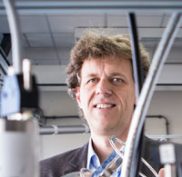
Thomas Röckmann (PI)
T.Roeckmann@uu.nlUtrecht UniversityThomas Röckmann is professor for atmospheric physics and chemistry and head of the Atmospheric Physics and Chemistry Group at the Institute for Marine and Atmospheric research Utrecht (IMAU) of Utrecht University. His key expertise is the development and application of innovative isotope techniques for atmospheric research. His research group operates a large and innovative atmospheric chemistry laboratory specialized in isotope ratio measurements on many atmospheric trace species. His research covers a wide field of applications with isotope studies, e.g. global trace gas budgets, detailed kinetic isotope effects, impact of anthropogenic activities on the atmosphere or stratosphere-troposphere exchange.
- Jordi Vilà-Guerau de Arellano (PI) Read moreNextClose
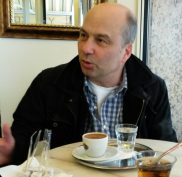
Jordi Vilà-Guerau de Arellano (PI)
jordi.vila@wur.nlWageningen UniversityProf Jordi Vilà-Guerau de Arellano is Professor of Meteorology at the Meteorology and Air Quality group in Wageningen University. He is also affiliated at the Max Planck Institute-Chemistry in Mainz and Science Officer of boundary-layer meteorology at the European Geophysical Union. His main field of interest is in the way the coupling between plants, turbulence and clouds influences weather, air quality and climate. To this end, he combines high numerical resolution simulations, regional modelling and the analysis of observations taken by advanced instrumental techniques. He is a lead-developer and -author of teaching and research concept Chemistry Land-Surface Atmospheric Solid Slab (CLASS) model. He is a main developer of the Dutch Atmospheric Large-Eddy Simulation (DALES). More information on his publication list and Jordi Vila | Publons